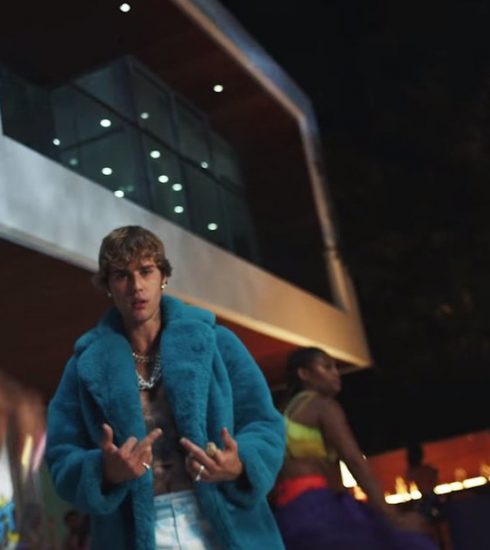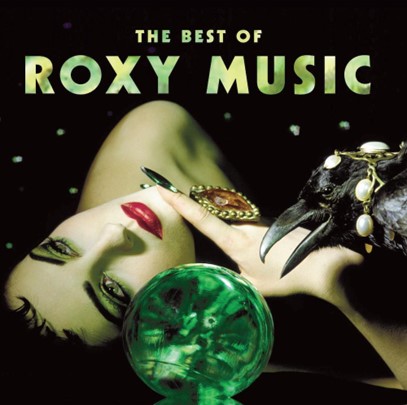Don Felder, Formerly of the Eagles, Chats About Influences, Success and His Most Memorable Collaborations
Last week we had the opportunity to speak with Don Felder, former lead guitarist of the Eagles. Usually in interviews, journalists are asked to focus on questions surrounding an artist’s latest album or tour in order to publicize it. In this case that would be Felder’s recent solo album, Road To Forever, and his upcoming inclusion in Peter Frampton’s Guitar Circus tour. The problem with interviewing a member of one of your favorite bands ever, is that it’s hard to stick to the questions they want you to ask. What made it even harder was Don’s incredible down-to-earth nature and cadence. So what developed out of my half an hour with Don was much less of an interview, and more of a conversation.
Although Don Felder may not be a household name for all, the man’s career accomplishments far exceed the deadbeat celebrities and past-due pop stars many waste their time admiring and following in the media. Felder has won Grammys and been inducted into the Rock and Roll Hall of Fame. He originated and co-wrote one of the most popular rock songs of all time, “Hotel California.” Aside from music, Felder also became a New York Times bestselling author for his book “Heaven and Hell: My Life with the Eagles.” Of all these accolades, which I’ve named only a few, Felder recalls the first time stepping onto a really big stage as one of the most defining moments in his career.
“It must have been about 1975 in London. We played Wembley Stadium and we were on the bill with Elton John. It was 110-150 thousand people in the audience and it was the first time I really got a sense of the scale of the fan base that we had built. I walked out and played that show and it was much like when you watch a baseball game. If you’re sitting far from home plate, you actually see the ball being hit by the bat before you can hear the sound. When we were standing on stage playing, you could see the wave of people who were jumping up and down slightly delayed across the stadium. It was just a phenomenal effect for me to observe. At the same time, it kind of expressed the magnitude of the level of success we had finally achieved.”
Another moment Felder takes immense pride in was in 1999 when the Eagles were awarded for the largest selling album of the twentieth century by the Recording Institute Association of America (RIAA), a.k.a., “The people who certify silver, gold and platinum records.” The honor struck Felder significantly.
“Out of all the people I had grown up listening to – Elvis Presley, The Beatles, Sinatra, and everybody that had made records of the twentieth century – we had sold more records than anyone. It was one of those ‘Oh my God’ moments.”
You have to wonder when it is that a musician realizes the scope of their success. To receive such an award from the RIAA would be the obvious sign of that. And Felder agrees that it was an awakening moment for him in that regard. However, he describes the “most primary, daunting realization” of his influence as when he played an event last October in NYC for the United Nations.
“There were about 350 or 400 heads of state from all over the world and half the countries didn’t speak English. I walked out and played ‘Hotel California’ for them and got a standing ovation. Even the people that didn’t speak English knew the words and were singing along with that song. To me, it was just overwhelming.”
When you click on Don Felder’s bio on his webpage, the first thing you see is an excerpt about an experience that changed his life: shaking B.B. King’s hand after a show he saw when he was fourteen. So what does it mean to Felder that he is now a part of the same tour, Guitar Circus, as B.B. – the man who changed his life?
“I’ve been quite honored through the course of my career to play and record with some of the most legendary people that have made music in my lifetime. This will be another one of those moments that I’ll appreciate the fact that when I was very young this man influenced me a great deal and now I’m at least being able to share a similar stage with him. It’s quite flattering for me and I really appreciate the fact that I’ve been blessed so much in that regard with my career.”
For a man brought up in one of the golden ages of musical expression and creativity, it made me curious as to who he would say is one of the most influential contemporary musicians today. I presented him with the same scenario, fast-forwarded a bit. As a fourteen year old today in 2013, who would Don Felder just have to shake the hand of?
“I don’t really know. Except for a few people, in my opinion, I haven’t really seen great guitar players or great bands. There aren’t any great virtuoso guitar players. The most recent I would throw out would be John Mayer. I think he is an exceptionally great player and I really admire people who write, sing and play their own music. When I was fourteen B.B. just stood out above everyone else that I had heard and seen play. It was just such a strong impression on me. And later Chet Atkins, Eric Clapton, Jimi Hendricks and these people who came along were just guitar virtuosos. Every time a new player arrived it would just be something new and different than what was happening in the past.”
Felder’s first solo album in three decades, Road To Forever, came out this past October. With control struggles within the Eagles as public knowledge and a topic Felder was very outspoken about in his book, it leads people to believe that being a part of the Eagles might have prevented Felder from expressing himself wholly as a musician.
“Everything in the Eagles was controlled. I came from a background of free-playing improvisation. So, the Eagles was exactly the opposite of that. It was really controlled down to what notes were played and exactly how they were played. You’d play the same song exactly the same way every night and it was quite restrictive in the sense that there was very little spontaneous creativity going on. Everything was calculated and controlled.”
So how did it feel to be in complete control when making Road To Forever?
“It was delightful for me through the course of making this last EP to really take the handcuffs off and be able to write, record and produce just about anything I wanted and anything I could think of. It was just a great experience and rush of enthusiasm for me to be able to do so and include the people that I wanted to work on the album with me. There is Crosby, Stills, and Nash. Stephen [Stills] and I have known each other since I was fifteen years old and the first band I played in when I got to California was Crosby, Nash. Also Steve Lukather from Toto, who is one of the funniest guys you can hangout with and just a brilliant player. Then there is who I think is probably the best bass player in Los Angeles right now, Randy Jackson. Everybody thinks of him as the judge on American Idol, but he’s just a monster musician. And then there’s Tommy Shaw, who co-wrote a couple of songs and sang with me. To be able to have these other musicians come in was just a really fun experience being able to take a really wide swath and cut it into numerous musical styles. This record has stuff that the Eagles would never really do, or could do in that format or structure of players. Yet I was able to do on this record any and all of it that I wanted. So it’s quite liberating to me.”
As part of this tour, Guitar Circus, which is based on collaboration, and with his latest album having a lot of influences from different artists, musical relationships seem to hold high importance to Felder.
“All of the people who came in and worked on this record I had a personal relationship with and also a historical past musical relationship with. I always turn to people to collaborate with that I’m not only inspired musically by, but that I feel very comfortable writing with. As a writer and an artist, you can’t be in a relationship with somebody where you are trying to work and are apprehensive about showing your ideas. Some of these very intimate songs and ideas were so closely tied to my life experiences. For example, the song that Tommy [Shaw] worked on is a song called ‘Wash Away’ about how we all go through life getting battered and wind up with scars on our hearts and souls from life experiences. We all want to have a way that we can turn around and wash all of that away so we can go on without damage. Tommy and I have been through similar situations and we’ve talked about our prior marriages and divorce, how difficult that was and the healing process. I knew his mindset was that he could identify very intimately with the subject of that song and would be able to tune into it on the same level I could. So the collaboration works really well.”
To hear that two great musicians, who don’t usually work together, are in the studio together stirs excitement and anticipation in fans. It is one of those fly-on-the-wall scenarios fans all dream they could be a part of. I asked Felder to pull the veil back for us and give a little more insight on how it works when you have two musical titans in a room together.
“The musical titan description I think is inaccurate. When I walk off stage, I take off that outfit or that costume and leave it hanging in the dressing room like a Broadway act would. When we sit down to write together there is admiration and respect, but at the same time, you have to be able to set that aside and get down to the actual core of the subject matter you’re writing lyrics or music for. The artistic part of it is different than the image part of it.”
So it’s a very stripped relationship necessary between you and the person you’re working with. No egos brought in, leave those at the door.
“Basically the creative process is taking ideas and insights and throwing them to see what sticks to the wall. If you have reservations about expressing those ideas and throwing them against the wall, nothing ever happens. I was just writing two weeks ago with Sarah McLachlan here at my house. We had this really long conversation for almost half the morning about the subject matter we wanted to encapsulate in this song. Now Sarah is a brilliant artist and very open – I mean she is able to peel back any façade and there she is. To me, that was just a wonderful relationship to be able to walk in the room with somebody that after an hour you feel like you’ve known them for ten years and get down right to the heart of the matter. I mean, you’re not being a true artist if you can’t set image aside and really just open up and work on the material.”
When I asked Felder to tell of a few favorites he has worked with either on stage or in the studio, his response painted a portrait of the musical community that many of our treasured rock hits were cultivated in.
“One of the most interesting things was when we were at Criteria Studios in Miami when I was with the Eagles. I think we were working on One of These Nights, must have been ’74, ’75. That particular studio has five other studios in it. And in one room the Bee Gees were recording, in the other room Chicago was recording, and in another room Clapton was working. There were just people all working up and down the studio there and as we would walk down, the door would open and somebody would be say, ‘We need a guitar part come in here.’ And I met Barry Gibb and Albhy Galuten, who is the producer for the Bee Gees, and walked into this control room. It turned out after working with them and learning a lot of their really innovative recording techniques and appreciating their musical creativity, I realized that there’s more than one way for a band to make a record. In that studio when you needed a horn part, you’d go grab a sax player out of Chicago. Or if you needed a keyboard player, Albhy, who had played on part of [Clapton’s] ‘Layla,’ would come in and play piano. It was really a community of exchanging talents there. Nobody ever charged anybody for anything; it was just everybody helping each other.”
Free exchange and being a part of a creative community is a sentiment Felder first attributes to his upbringing in Gainesville, Florida.
“In Gainesville it was that same kind of environment with me teaching Tommy Petty guitar and Duane Allman teaching me how to play slide. You know, [Stephen] Stills being in a band with me and giving me the vocal influences and then Bernie Leadon came in. So it was all about musical exchange and just that never-ending hunger for new, inspiring music. I think that’s really what has driven me and all of those people that I grew up with in Gainesville to be involved in the music business their entire lives.”
Felder continued to rattle off stories that would rock anybody’s world about experiences he had with other musicians. He told of the time he was invited to play with another one of his childhood heroes at their studio, Ray Charles. He spoke of when he opened the door of his Philadelphia hotel room to Stevie Wonder after Wonder had heard him practicing mandolin, resulting in an impromptu personal mandolin performance for Wonder in the room. And when Brian Wilson showed up unannounced at Felder’s studio in Malibu after hearing the music coming from within (Wilson’s barber being located just below the studio).
“It’s just been kind of a constant connection with other people in the music business and quite frequently it’s been unintended. It’s not me pursuing them, it’s just our paths are crossing and we are sharing and appreciating each other’s music.
To bring my conversation with Felder full circle, I reverted back to my original question where I had asked him about the most defining moment in his career thus far. Now I felt comfortable taking that question one step further. I told Felder to envision himself on his deathbed, years and years from now. Then I asked what he hopes to be able to say is his most defining moment in life. After granting me the “ultimate kudos for asking really serious questions,” Felder proceeded with an answer.
“I think probably my experience as being husband and father would be my greatest achievement; that all of my children have turned out really well and very happy. They’re all married and they have kids of their own. That’s really what you want most in life as a human being when you’re married and have children: that your children grow up and be healthy and happy, not having suffered too much parental abuse along the way either through discipline or the lack of attention. So I would say at this time, the fathering of my kids would be my greatest accomplishment.”





